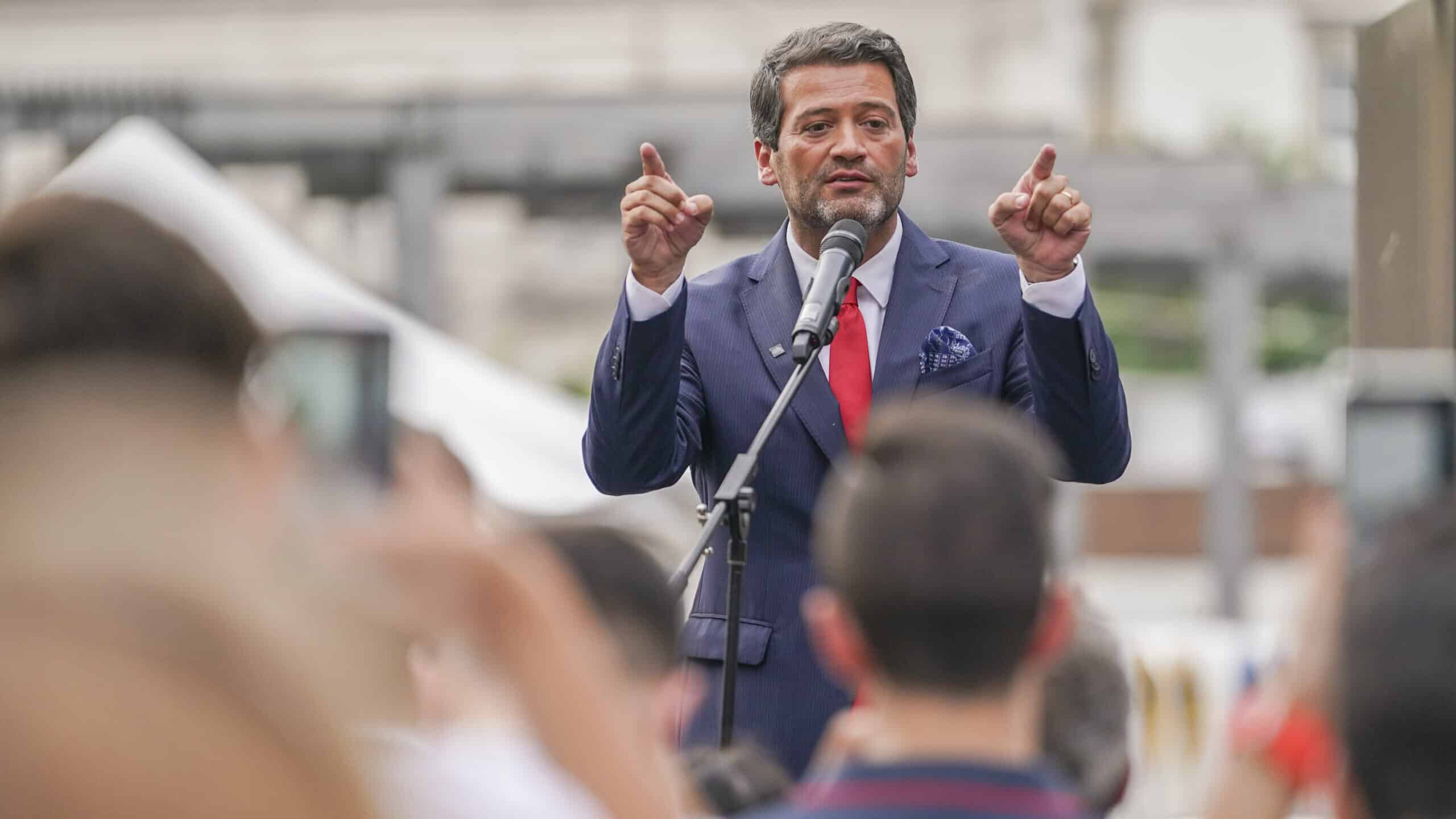Wants referendum in exchange for support for AD government
Right wing party CHEGA is ready to propose to parliament a national referendum on the creation of quotas for immigrants.
The plan is to make the proposal before discussion on the State Budget for 2025. This way it will be “another element in the negotiations”, CHEGA leader André Ventura has told Expresso.
“Although the vote in favour of the budget does not definitively depend on the approval of the referendum”, (approval) will be “important” to define his party’s position, he told the paper. A form of quid-pro-quo.
Ventura is “increasingly betting on immigration as a flag” for his party, explains Expresso.
The referendum initiative “will not be disconnected from the demonstration that the party has called for September 21 in Lisbon against what it classifies as “uncontrolled immigration”, which the party links to “insecurity in the streets”.

Thus, parties’ return to parliament in a couple of weeks time will be ‘interesting’.
If CHEGA does vote with the government over the 2025 State Budget, the document will pass – guaranteeing Luís Montenegro’s minority administration makes it into the coming year.
If CHEGA abstains, the budget could still potentially fall (creating further political instability).
But whether or not parliament supports the proposal for a referendum is another question.
Minister for the presidency Leitão Amaro has told Expresso in an interview that his government will “never advocate the introduction of quotas” – rather it wants to see “the establishment of quantitative goals, not from the perspective of closed doors, but in the proactive attraction of talent.
“We talk about the plan in terms of a list of labour needs, which is a language that cannot be manipulated to make it look like something else”, he said.
To the lay reader, this may look like semantics: CHEGA wants ‘the creation of quotas’; the government wants a ‘plan in terms of a list of labour needs’. There is clearly space for negotiation…
Expresso also throws a curved ball into the ring: while Ventura suggests President Marcelo would be “weakened” if he rejected the referendum, the paper considers that even if PSD and CDS (the parties making up the AD government) approve the idea, the final word falls to Marcelo.
“According to the Referendum Legal Regime, if the referendum proposal is rejected by the President of the Republic, ‘it cannot be renewed in the same legislative session’ (the current one started in March and runs until July of next year). If the initiative comes from the government, it can only be repeated with the formation of a new government”.
Ventura does not seem fazed by this, saying that he believes Marcelo would not go against a decision that would unite a right-wing majority in the Assembly of the Republic: “I don’t think that the President of the Republic rejects a legitimate question asked by the parliamentary majority”, he told the paper.
This latest requirement from CHEGA is an evolution regarding the State Budget. André Ventura’s initial position, right after the elections, when he obtained a historic result, was very clear. Four days after the March 10 elections, he told Expresso that the State Budget would only be viable if there was a generic agreement for the governance of the country with CHEGA. On the 20th of the same month, in an interview with journalist Vítor Gonçalves, on RTP, he was even more specific: “The State Budget is not a document made up of measures glued together, it is where the general orientation of a country is (…) . If there is no governance agreement, this door is not open, and it was the PSD that closed it.”
The party’s position, however, has been moderating. Five months after the initial test of strength – with a poor result in the European elections, CHEGA’s all-or-nothing discourse has lost strength, says Expresso: on August 1, Ventura gave an interview to SIC Notícias, acknowledging that, “after the elections”, the party was available “to build a majority, but that time has passed”.
Thus, giving up on an agreement over governance, Ventura is going for negotiations at a point where the government itself is fighting off heavy criticism from left-wing parties over the state of emergency healthcare, particularly when it comes to expectant mothers and young children.




















